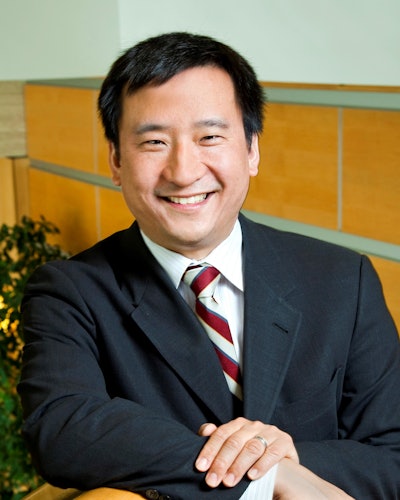The most disturbing conversations I have had about the internment of Japanese Americans during World War II have been with Chinese foreign nationals. A few of them — I do not wish myself to stereotype from these examples — have expressed sentiments similar to White nationalists back then who wished to drive out all their Japanese American neighbors, regardless of their citizenship, declaring explicitly they’d rather none return even after the conflict was done. The Chinese who are sympathetic to such an attitude regard it as common sense, to deal with the enemy as an enemy. This presents a dilemma that will become only more aggravated, in the encounters of people globally rather than merely domestically.
We here in the United States have officially apologized for the imprisonment of 120,000 people on the basis of their ancestry, even the native-born and assimilated. Ironically, the Japanese Americans, if one were to generalize, had sought to be as much a part of the mainstream as possible. Community leaders had looked upon the experience of Chinese laborers who had arrived before the influx of Japanese immigrants, warning that the former had faced hostility because they were bachelors crowded into urban tenements, so the latter should form families to show they were settling down. An individual named Ozawa who petitioned to naturalize a century ago, arguing he qualified as a “free white person,” took pains to emphasize how he had adopted American customs, leaving behind Japanese traditions. He lost nonetheless.
 Frank Wu
Frank WuYet when the round up occurred for the internment, with Japanese Americans forced to sell their possessions for a pittance or give away their belongings, since they could bring only what they could carry, Chinese Americans were not especially sympathetic. Hardly anybody was, except Quaker pacifists and ACLU lawyers. Some shopkeepers put up signs in their windows explaining they were Chinese, not Japanese. Others even reportedly wore buttons stating, “I Hate the Japs More Than You Do.”
During the civil rights movement of the subsequent generation, however, a sense of Asian American identity formed. Although artificial, it represented the best of bridge building. People whose forebears had fought total wars against one another saw a common cause, at least in mutual defense, since they were accustomed to being mistaken for one another — “you all look the same.” The resulting coalition, which even included a Yellow Power movement modeled on its Black Power counterpart, insisted that they belonged on this side of the Pacific Ocean, as citizens and equals.
For Chinese exchange students, Asian American identity is literally foreign. They are neither Asian nor American of course. There are Koreans and Filipinos, too, and no doubt others, who will confide their antagonism toward Japanese Americans, arising from Japanese aggression of the past.
There are few if any Asians in Asia. That claim, which seems preposterous, is in fact realistic. In Asia, people are much more specific about who they are, naming themselves by nationality, province, faith, dialect, and clan; they divide as Europeans and Africans likewise would do, distinguishing in a manner outside observers would not understand. Pan-Asian identity in particular is associated with imperialism. Seventy five years ago, Japan created an “East Asian Co-Prosperity Sphere” as a euphemism for annexation of territories as its ally Germany envisioned the Third Reich expanding the needed “Lebensraum” over the objections of defeated neighbors.
Asians may have American cousins. They might enjoy Hollywood movies. But like others around the world, they take pride in their own cultures. As Asians are empowered by the ascent of their economies, they may be less enthusiastic about the possibility of becoming Americans; they can succeed without migrating overseas, potentially humiliating themselves in the transformation that would trade heritage for opportunity. They do not necessarily share the same sensibility that people are to be treated as individuals rather than members of groups, because that is not their worldview, which also happens to be a long view.
Thus collective responsibility, and correspondingly guilt, is more readily accepted as a concept as it was by the Greeks and Romans of antiquity. The Chinese who have indicated to me they appreciate why American officials would be skeptical about Japanese American loyalty point to Pearl Harbor as virtually all American leaders did at the time, as an example of how Japanese as a race cannot be trusted. Diplomats were negotiating even as the navy crossed the ocean for the sneak attack, confirming the propensity of these people to play a trick, whether the trait was nature or nurture. The Chinese who compare Pearl Harbor with the Nanjing Massacre cannot forgive Japanese for the rape and murder of hundreds of thousands, and destruction of an historic city, and they extend their feelings to Japanese Americans.
Racial nationalists, who equate ethnicity with belonging, can co-exist with each other. Their acceptance may be begrudging, but they can be sympathetic to one another’s sense of who should be where. They will avoid conflict if they stay in the appropriate place and don’t claim the same territory. It is those whose race and nationality do not correspond, or who are cosmopolitan, who threaten an order deemed natural.
Perhaps I am the one who is wrong though. I disagree with the Chinese who would attribute the war crimes of the Japanese Empire to Japanese Americans who may have no meaningful relationships to their ancestral lands. Yet I am not so arrogant as to suppose my opinion of what is appropriate are the only alternative. I will put it as a question for others to answer: if we embrace diversity, how should we judge those who favor societies set up differently?
Frank Wu is the William L. Prosser Distinguished Professor at the University of California Hastings College of Law.


















